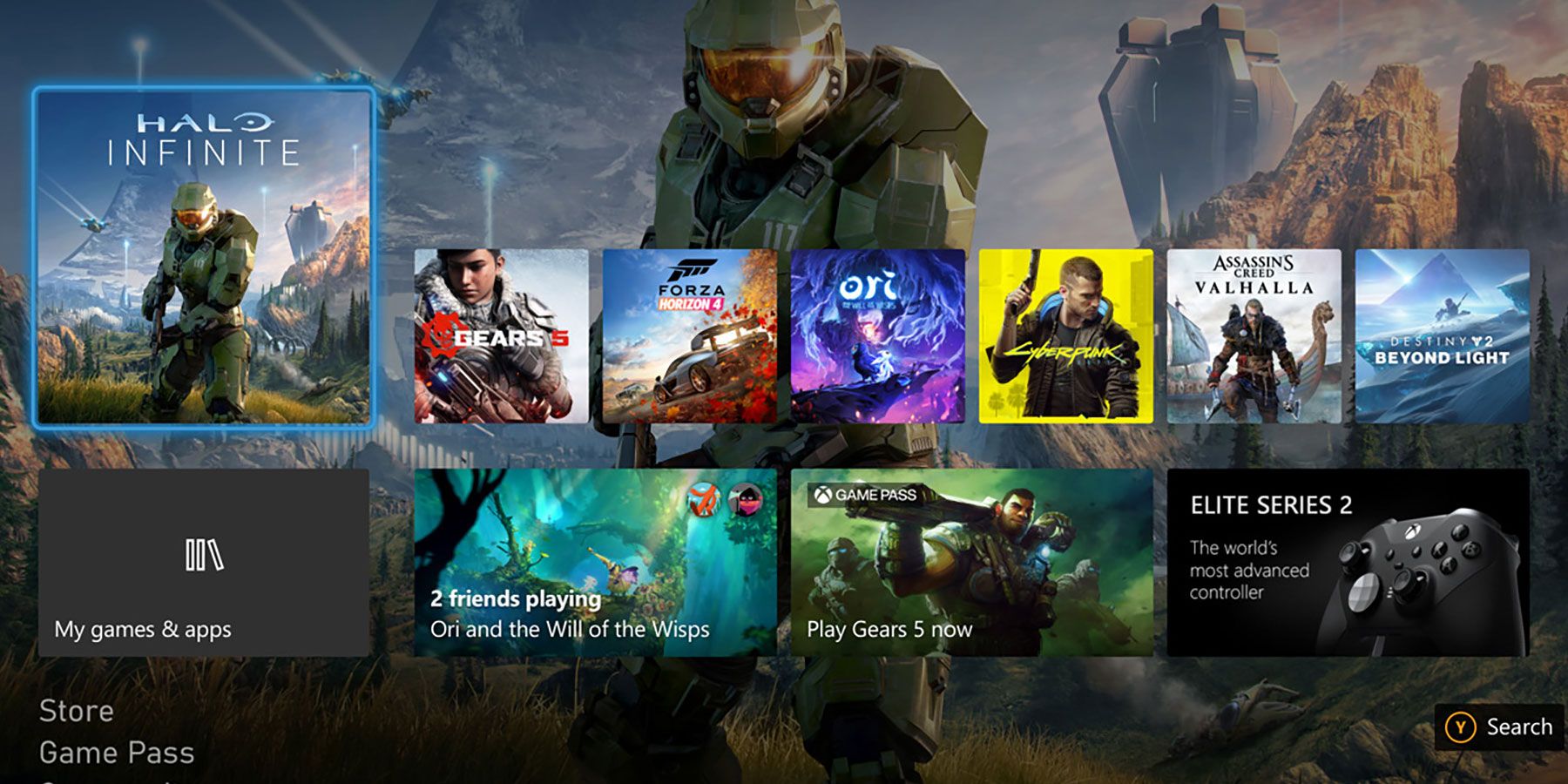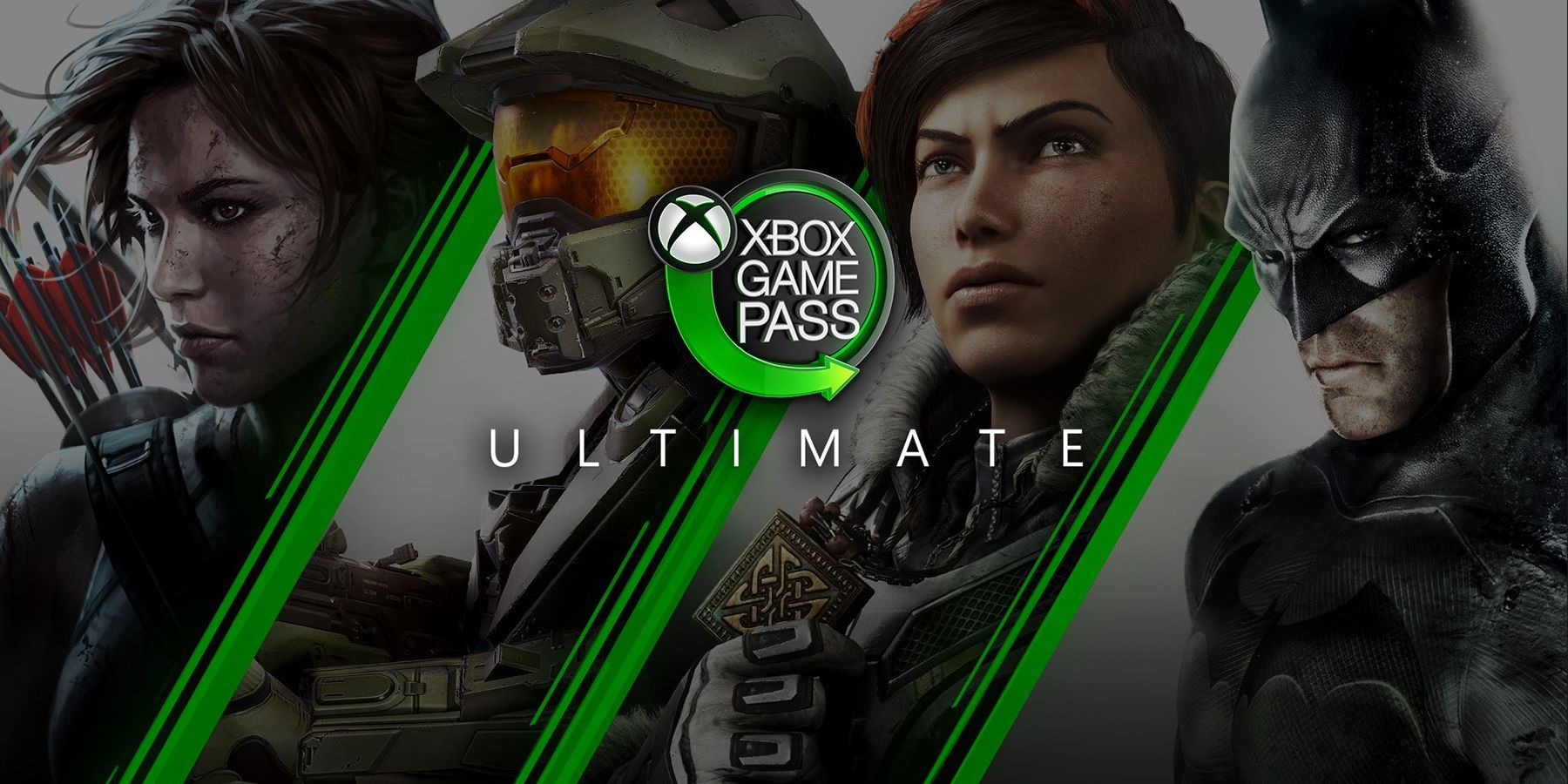Halo Infinite made headlines last week because the physical edition of the game doesn't actually house all that much data on the disk itself. Things like the campaign and many aspects of the multiplayer require an internet connection to download and access when using a physical copy, causing part of its community to speak out in disapproval. Part of the intentions of this move by 343 Industries was likely to keep the integrity of the game's story safe until the studio was ready for it to launch, but there are other logistical aspects to it as well.
While this "incomplete disk issue" isn't a new practice ushered in with Halo Infinite, the game highlights a much bigger issue with the idea of ownership on the Xbox platform. Essentially, a lot of Xbox owners haven't been purchasing games thanks to the incredible deal that is Xbox Game Pass, meaning that actual ownership of titles is likely decreasing, and even those that do own specific games might not be able to have access to all of their content in the future. This begs the question of what ownership even means on Xbox.
Digital Ownership in a Digital Age
Microsoft has made it very clear that, above the other gaming giants in the industry, it is interested in honoring its players' purchases through the years by giving the Xbox Series X backward compatibility options unseen in any other modern consoles. For example, if someone owns a game on the original Xbox or the Xbox 360, it will most likely be able to run on the system if put in the disc drive. On that front, Xbox is paving the way for game preservation and ownership when it comes to the company's history up until now.
It's still to be seen what the lifecycle of Xbox Game Pass is going to be and how long it will last, but it seems almost certain that, at some point in the future, the service will eventually shut down. That's not to imply that Game Pass' death day is coming anytime soon, just that as gaming evolves, it could be replaced or made redundant at some point. It's been over a year since the launch of the Series X, but most gaming fans aren't purchasing their games, instead opting to play Microsoft's first-party titles through Game Pass. Currently, that option works just fine to access a player's favorite games. However, if that same person is looking to play a "classic 2020s" game in the future, they may be out of luck as the game might not be preserved and the player never actually owned it.
Even if they did opt to purchase a game physically for that very reason, Halo Infinite, among other games, has shown that simply owning a title might not be enough to actually be able to play it. In the future when the servers for Halo Infinite go offline, players would not be able to download its campaign, making the ownership of the physical disc almost meaningless when it comes to preservation and ownership.
To be clear: none of this is to say that there's anything wrong with the way that video game ownership is being handled currently. However, it takes one look at the way PlayStation handled the attempted closure of its PS3 and PSVita stores to see that there exists a possibility where the current consumer dependency on Xbox Game Pass and other server-based services to play titles could lead to countless titles being inaccessible and unowned in the future. It seems as if Xbox is dedicated to making sure something like that doesn't happen based on its current push to keep backward compatibility alive, but only time will tell if the company can keep that up in the long run.
Halo Infinite is available now for PC, Xbox One, and Xbox Series X/S.


